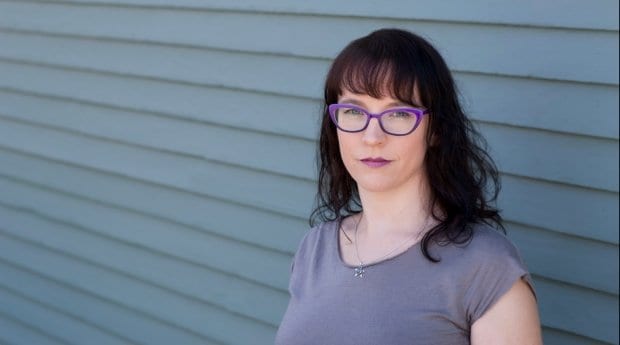It’s Pride Sunday in Vancouver, Aug 3. Coffee in hand, I start the day off with an interview on CKNW radio talking about my recent run and withdrawal from Vancouver’s upcoming municipal election. The rest of my day will consist of writing op-eds and planning two upcoming forums on diversity and representation in politics. Pride for me today is about asking what’s next for our community.
We’ve come a long way, it’s true. Not only do we host the best annual party this city holds, we have also made strides in representation in Vancouver politics. Back in 1986, Gordon Price was elected to city council as Vancouver’s first openly gay councillor. In 2002, Ellen Woodsworth, an out lesbian, and Tim Stevenson, an openly gay man and former MLA, were elected to city council. Currently, we have Trevor Loke on the parks board, Stevenson still on council and, if we all vote, Vision parks board candidate Coree Tull, founder of the Double Rainbow dodgeball league, may join Loke.
With this smattering of queer community representation in municipal politics, why is it significant that I am no longer in the race? What does it say about politics that as a queer candidate, my history as a sex-positive artist and activist made me a target for a smear campaign?
I think it says something we can’t skim over.
I think in my case there are some sexist biases that compound my vulnerability: our society is still uncomfortable with women who claim their sexuality and regularly shames and silences women with accusations of sexual promiscuity. But I also think my short-lived run shows queer candidates stand a chance as long as they don’t evoke sex as part of their queer identity.
In the vetting process, I gave Vision Vancouver a detailed list of the types of sex-positive work I have done, including editing and contributing to several gay and lesbian erotica publications and doing burlesque in pre-camera-phone times, but it did not occur to me to make these things a big part of my candidate bio. In a nomination race with nine candidates, I was the only one with actual experience working on policy with the parks board. That seemed more important. And ultimately, I did not feel a need to focus on my sex-positive, queer life because I was told by Vision that it would not be an issue.
But Vision was wrong. It became an issue. As gay-friendly as we think our city is, a monologue of mine from a Fringe Festival play that I wrote and performed in 2000, in which I talked about the invisibility I felt as a young single person and admitted to a kind of self-love that included masturbation, became what a blogger titled “Another Nail in the Coffin for Vision Vancouver.”
To see this in print in the context of a queer newspaper is mind-blowing. In our queer culture, where sexual acceptance and celebration are foundational values of our community, it seems absolutely bizarre. We have built for each other a beautiful, loving community, and the edges seem to be expanding for us, allowing us more representation in the broader societal context. And we keep sending out scouts beyond the edges, each one carrying a little bit more of who we are and testing acceptance. This time we have been told that sex-positive performance art is too much of who we are and may even undermine our ability to make decisions about off-leash dog parks or playground equipment.
I’m not knocking our existing LGBT representatives who have challenged the narrow frame of acceptance and electability. They have fought hard to get us where we are. I actually worry for them that the attention I am drawing to this issue may make the voting public — the ones Vision anticipated would not accept a parks board commissioner who has talked about desire — realize that these champions of our community actually have sexual lives.
As a community, one of the gifts we have to offer other communities is our knack for celebration. We use spectacle and celebration to show others how good it can feel to overcome shame together, in community. Until the masses lining our parade route understand that our pride is not just spectacle but an embodied statement that sexual expression and agency are everyone’s birthright, our queer politicians will never really be safe.
We still have a long way to go to true equality.
Trish Kelly will be hosting a forum on women and diversity in politics at SFU’s downtown campus on Tues, Aug 26. Visit votetrishkelly.ca for details.

 Why you can trust Xtra
Why you can trust Xtra


